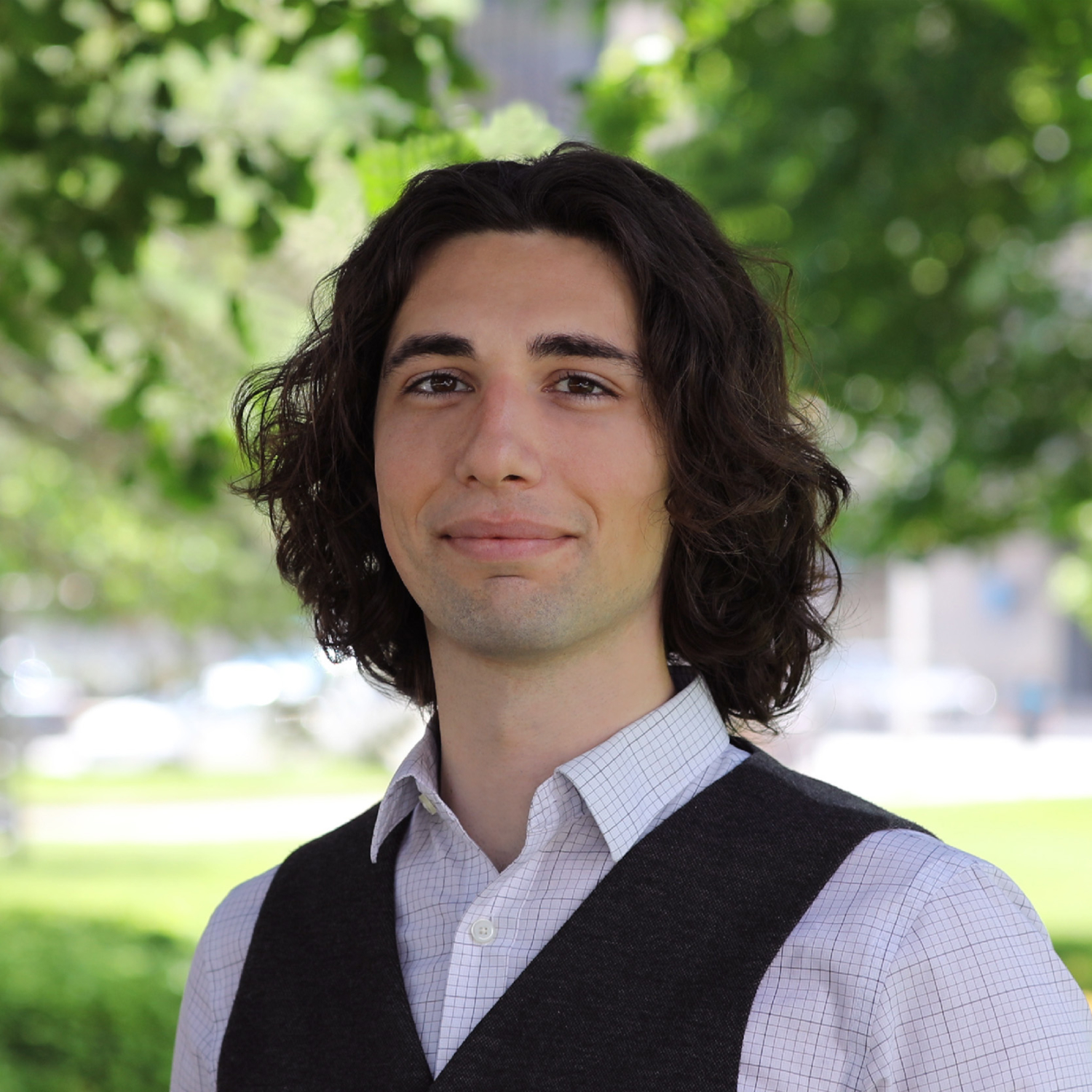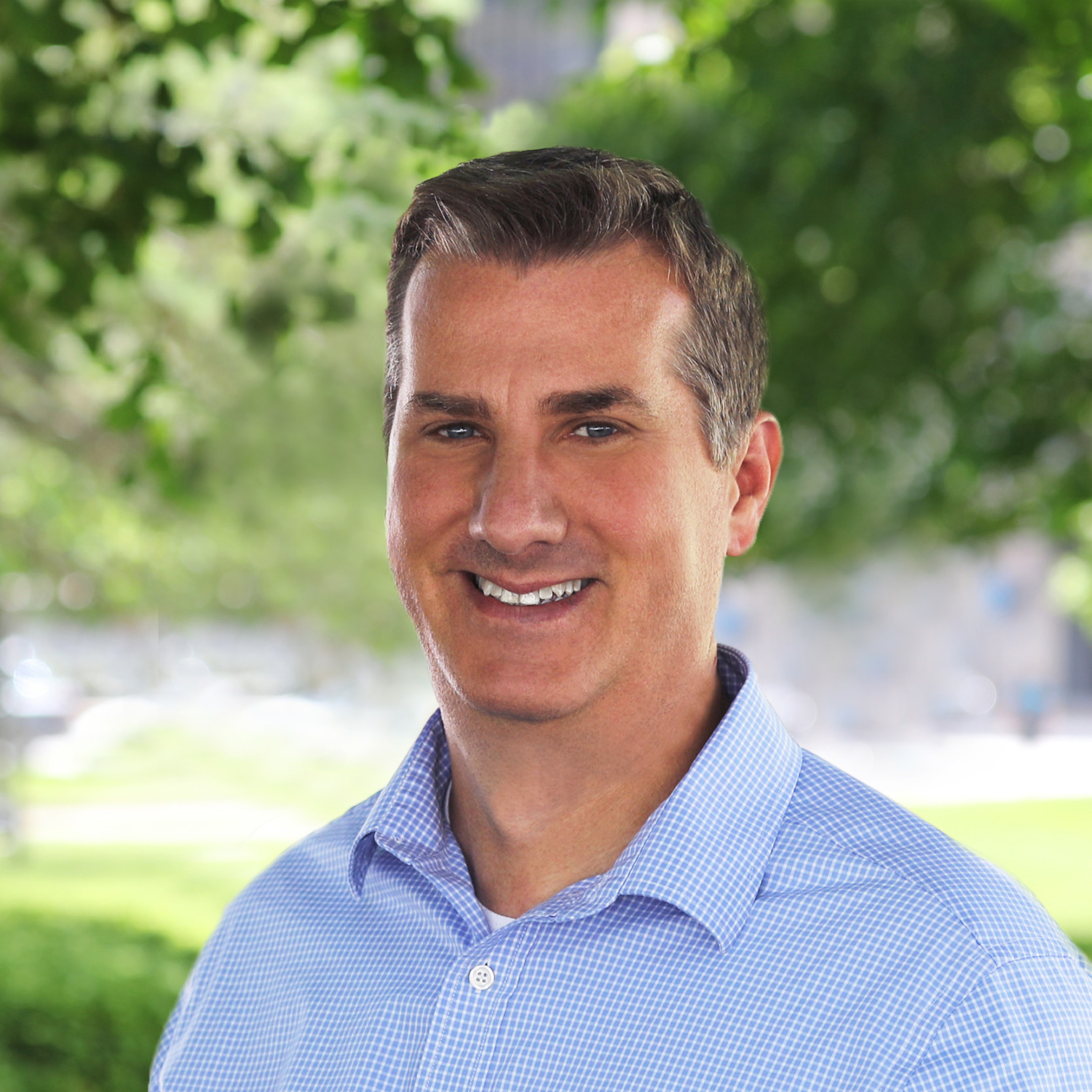Public Opinion Tracker Deep Dive: Perspectives on School Safety (June 2022)
The recent shooting at Robb Elementary School in Uvalde, Texas shook the entire nation and generated intense pressure to change approaches to firearms and school safety. While the tragedy induced Washington to pass the largest gun reform law in three decades, many Americans—especially parents and teachers—will continue to question whether schools are safe enough.
Because we at EdChoice regularly survey parents, teachers, and the general public, we were in a position to ask those populations about school safety – both observations and opinions – just after the Uvalde tragedy. As such, we included a series of questions about guns and school safety in our June polling.
EdChoice and Morning Consult asked the general public (N = 2,198), parents of school-age children (N = 1,028), and teachers (N = 1,000) questions to better understand their perceptions of school security in the past and what ideas could improve safety going forward. The surveys were in the field June 15-26, launching 23 days after the Uvalde shooting.
Given the elevated national attention around and sensitive nature of these issues, we are releasing these findings in advance of our regularly scheduled monthly reports. Our next full polling report will be available July 12 at the EdChoice Public Opinion Tracker website.
Here are the findings from our school safety questions:
1. Teachers are more pessimistic than parents about how well schools address mental health and safety issues. In our questionnaire to current school parents, we asked how well their children’s schools address mental health, guns, bullying, and violent behaviors. Teachers were asked about the same four issues in the context of the school where they teach. Just over half (51%) of parents felt their children’s schools handled mental health issues “extremely” or “very” well. Parents were slightly less optimistic about how those schools handled guns (48%), bullying (48%), and violent behaviors (47%). Parents of children in high school were noticeably less favorable toward those schools’ handling of mental health (46%), bullying (43%), and violent behaviors (44%) compared to parents of younger children. Only about one-third of teachers thought their schools handled mental health (33%), guns (36%), bullying (34%), and violent behaviors (32%) “extremely” or “very” well.
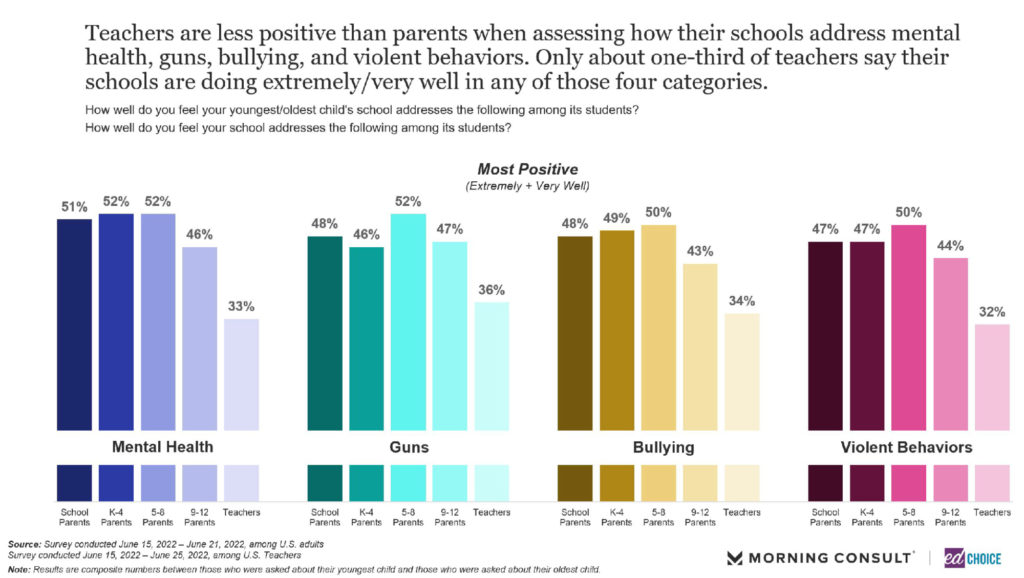
Private school parents were most likely to have strongly positive views about these four issues in their children’s school. Males and urbanites were also more likely to be positive about these matters compared to other demographics. Black parents were particularly unlikely to think their schools were handling guns or violent behaviors well. Special education parents were polarized on bullying and violent behaviors in their schools—they were one of the demographics most likely to have a strong positive view and a strong negative perspective.
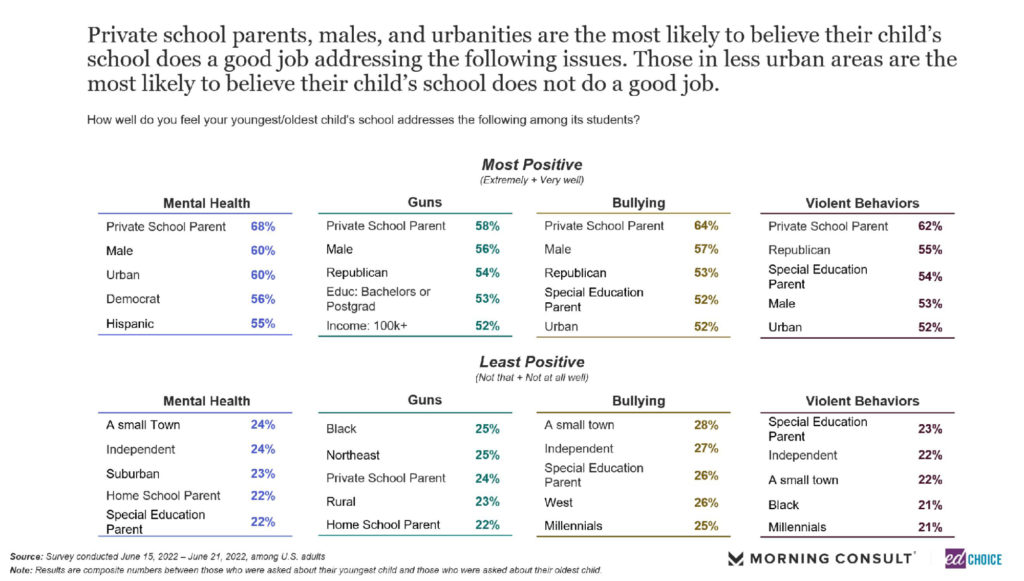
2. Parents are less likely than teachers to indicate their schools use certain safety measures. We presented nine measures a school might take to keep students safe. The average share of teachers who said their school employed a given measure was 63 percent, compared to just 39 percent among school parents. Teachers most frequently identified locked doors (79%), intruder drills (69%), counseling services (68%), and safety training for teachers and staff (67%) among safety measures employed by their schools. Parents of high schoolers were more likely to identify their children’s schools using most safety measures than parents of younger children.
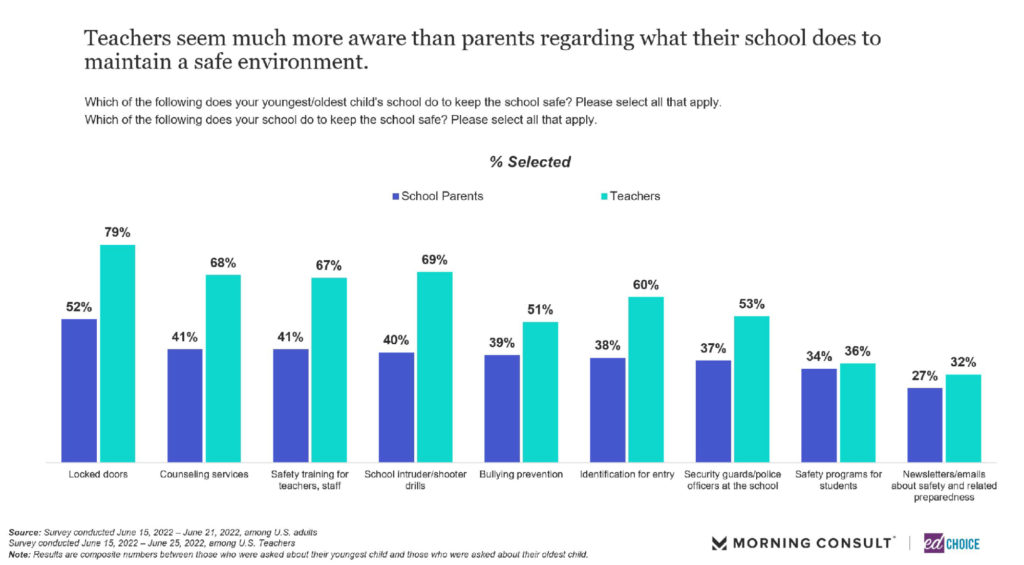
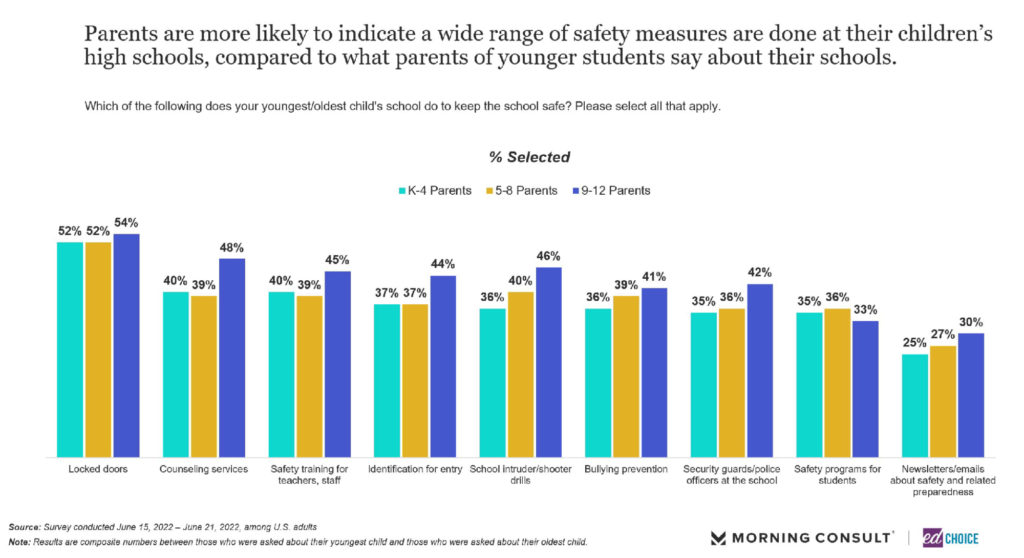
3. Roughly one out of four school parents believe gun violence in their local school is at least “very” likely next school year – a higher proportion than among teachers. Just under one quarter (23%) of parents believe gun violence is “extremely” or “very” likely in their local school, while just under half (48%) believe it is not likely. Teachers are relatively less likely than parents or the public to think gun violence could happen next school year.
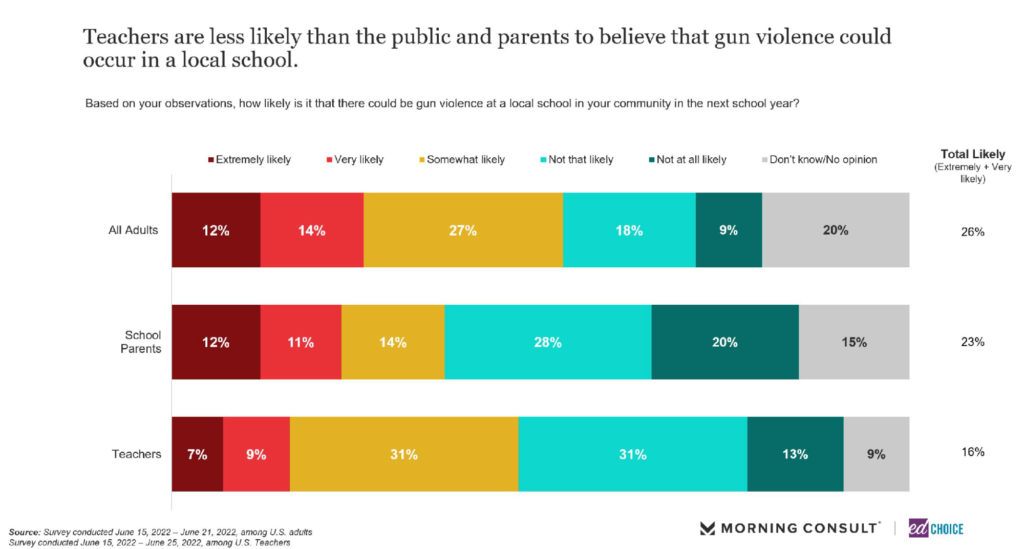
Private school parents were more likely than any other parent group to think gun violence was at least “very” likely at their local school. Private school teachers, on the other hand were more likely than any other grouping of teachers to say it was gun violence was an unlikely event at their school. Regardless of parental or teacher status, Black, urban, and Democrat populations expressed greater concern about gun violence in their local school.
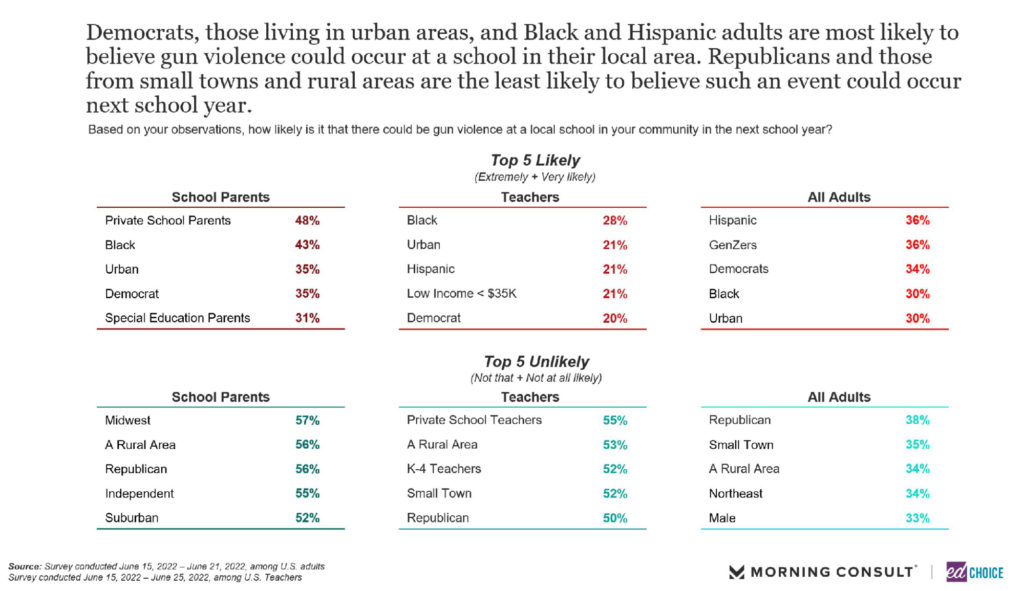
4. Mentioning the Uvalde tragedy somewhat increases the likelihood children and parents are concerned about a mass shooting occurring at local schools. We asked parents whether they or their child were concerned about a mass shooting happening at their school, and we randomized whether respondents saw a specific mention of the Uvalde shooting in that question. Parents that saw the Uvalde reference were six percentage points more likely to say their child was concerned about a possible shooting and eight points more likely to say they were concerned themselves.
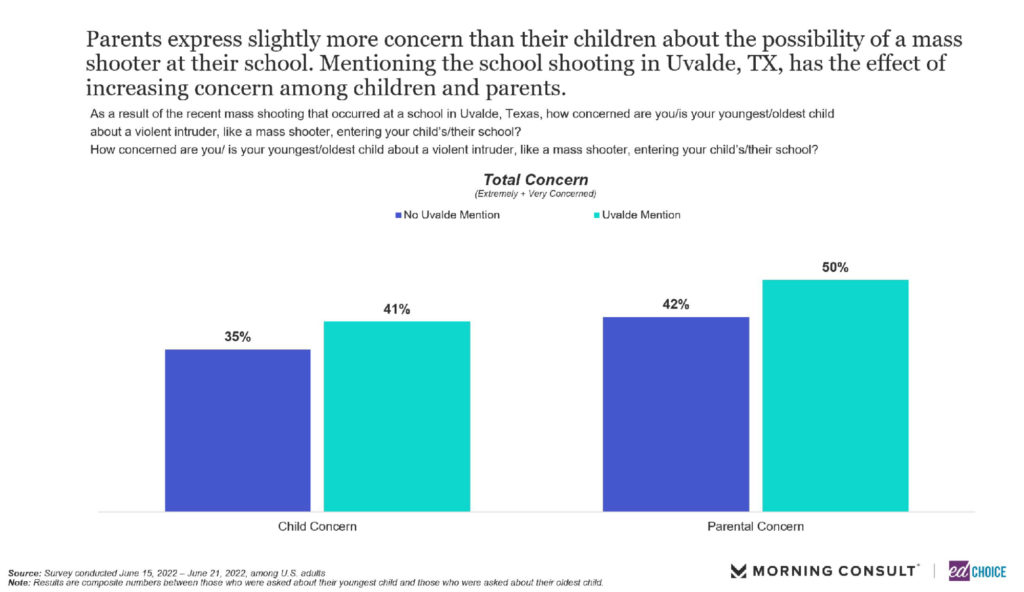
5. Parents, non-parents, and teachers differ slightly in their policy preferences regarding school safety. Teachers were substantially more likely than the rest of the population to support more investment in mental health programs, raising the minimum age for legal gun ownership to 21, laws that allow police to confiscate guns from those exhibiting troubling behavior, and banning assault weapons. Parents were slightly less likely than the general population to support any of these three policies. Parents were more likely than the public to support armed security guards at every school and limiting entry and exit points, though the latter was the least popular idea among parents.
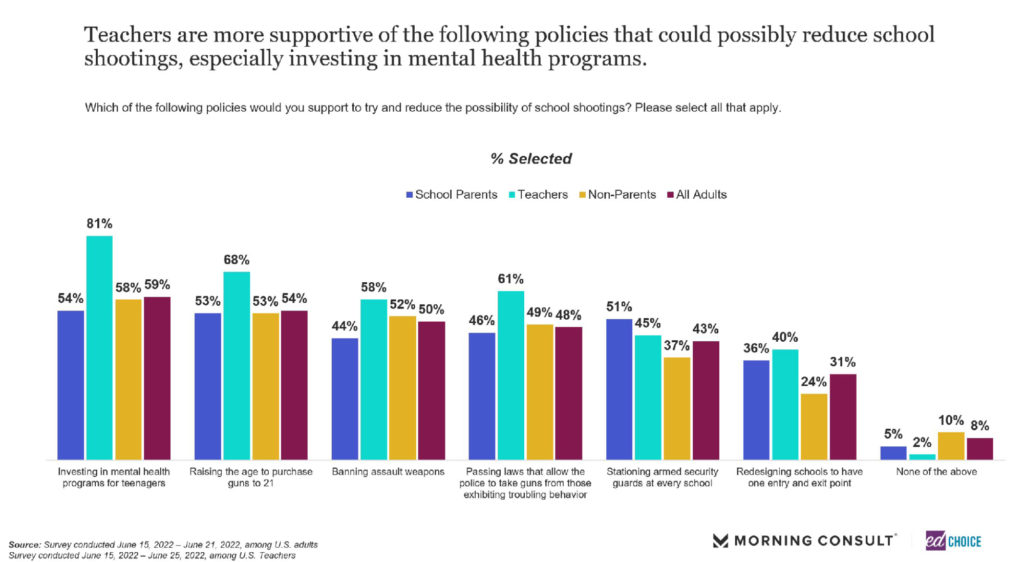
6. Parents are more supportive than the public of allowing teachers to carry a firearms in school, but most teachers indicated they would not carry weapons if allowed. Three out of five parents (60%) of parents indicated they would support their school district allowing teachers to carry firearms in schools. In a separate question, 54 percent said they specifically supported their child’s teacher carrying a gun. In comparison, 32 percent of parents opposed such a school district policy and 38 percent were uncomfortable with their child’s teacher carrying a gun. Among teachers, only about one out of five (21%) signaled they would carry a firearm in school, if allowed.
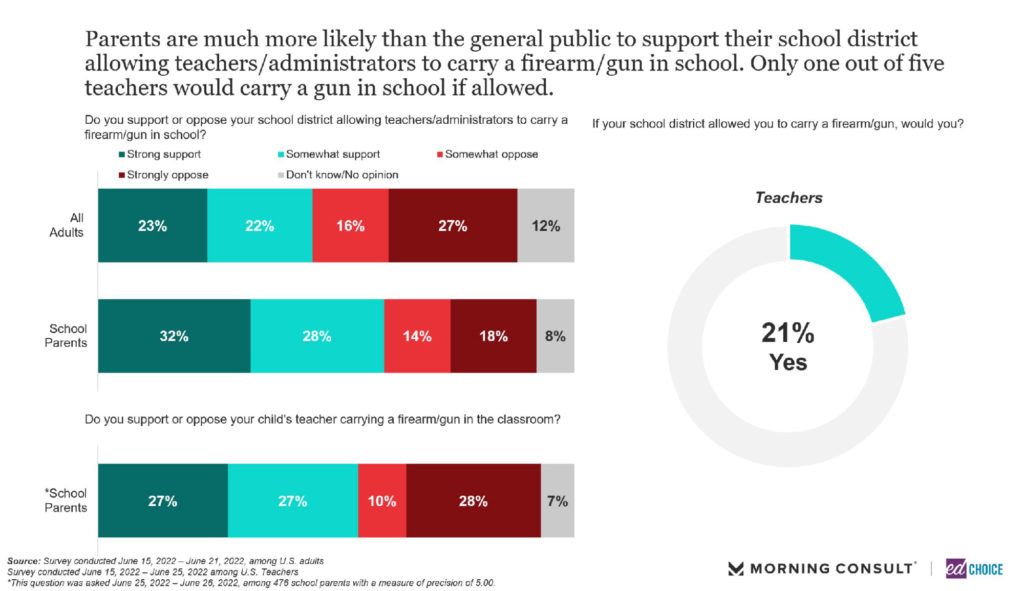
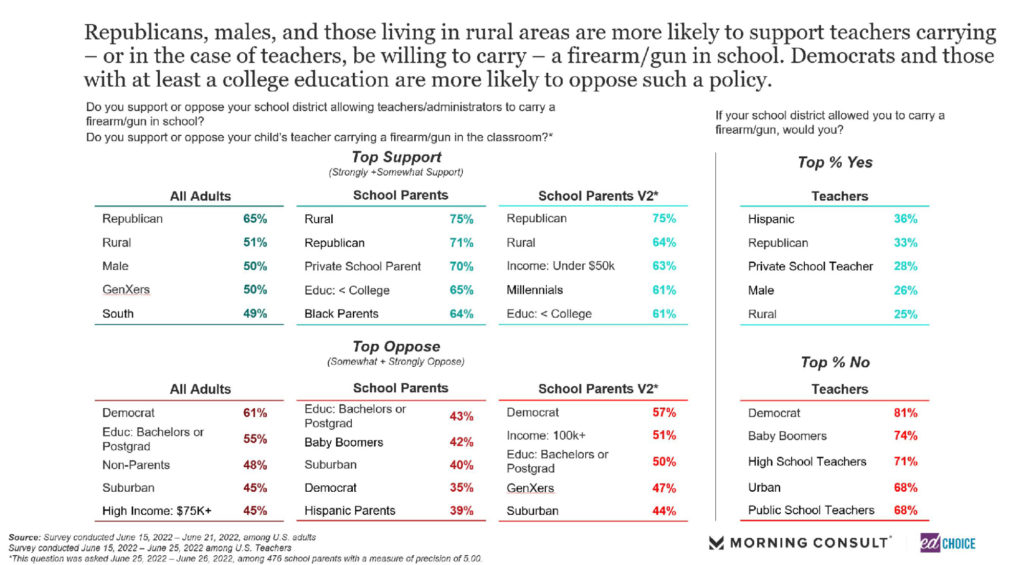
Parents were more likely than the public to support a district policy permitting teachers to carry firearms. Republicans and those in rural areas were most likely to support a permissive gun policy in their school district. People in suburban areas and those with college degrees were particularly likely to oppose such policies.
Visit the EdChoice Public Opinion Tracker site to access past questionnaires, and our national and state dashboards that are updated monthly. We also provide a more in-depth description of our research and survey methods.
Our K–12 education polls archive is updated on a rolling basis, roughly a few times each month. Please don’t hesitate to let us know if we are missing any surveys, or if there are accidental errors.


